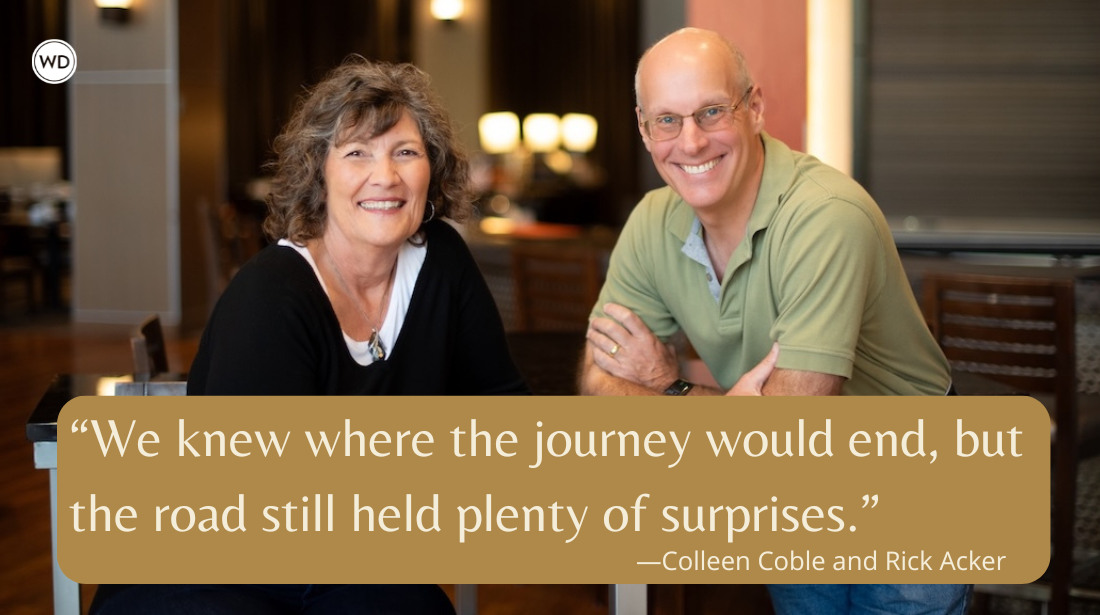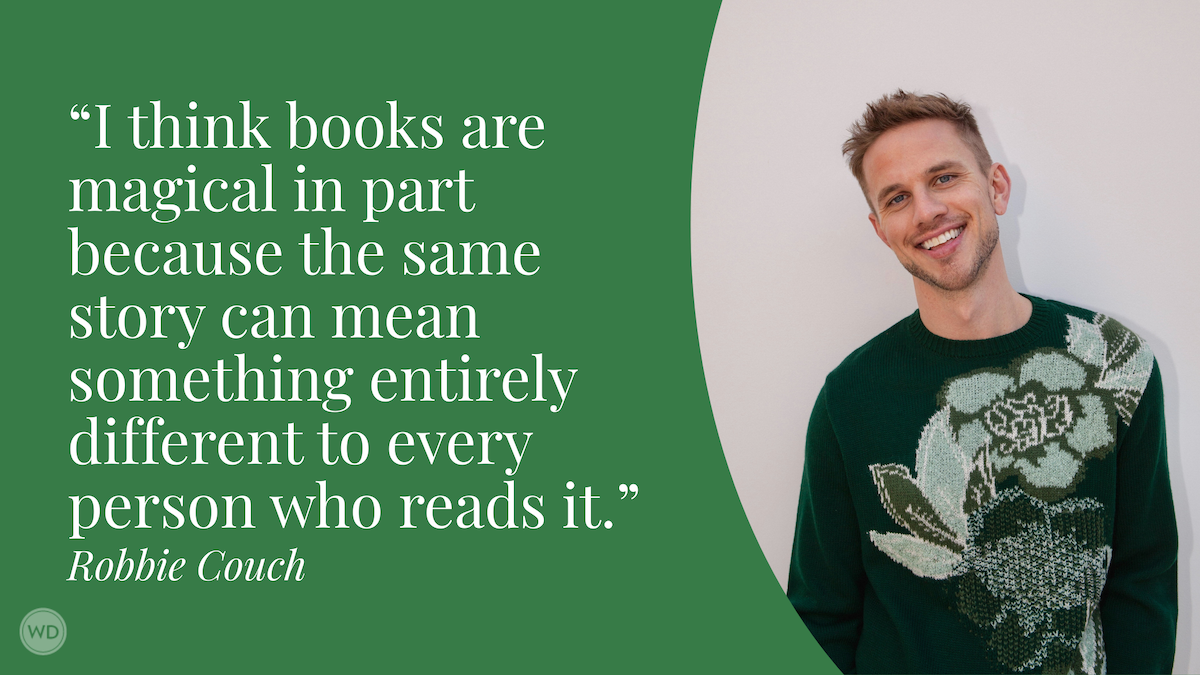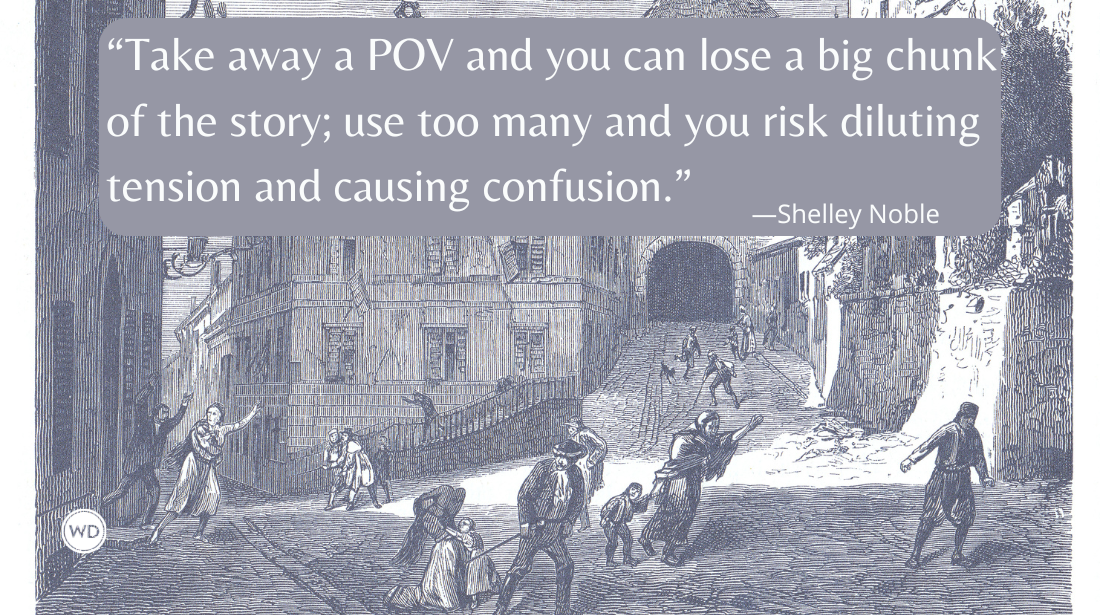Rachel Eve Moultong: Always Listen to Your Editor
In this interview, author Rachel Eve Moultong discusses how writing out a rant at her daughter’s swim meet led to her new horror novel, Tantrum.
Rachel Eve Moulton earned her B.A. from Antioch College and her M.F.A. from Emerson College. Her work has appeared in Chicago Quarterly Review, Bryant Literary Review, Narrative Magazine, Southwest Review, and the New Ohio Review, among other publications. Her debut novel—Tinfoil Butterfly—was long-listed for the Center for Fiction First Novel Prize, and nominated for both a Shirley Jackson Award and a Bram Stoker. Her second novel—The Insatiable Volt Sisters—was named as one of the top ten horror novels of 2023 by the NYT Book Review. She’s spent most of her life as an educator, writer, and editor. She lives with her husband and two daughters in the mountains east of Albuquerque. Follow her on Facebook and Instagram.
In this interview, Rachel discusses how writing out a rant at her daughter’s swim meet led to her new horror novel, Tantrum, her hope for readers, and more.
Name: Rachel Eve Moultong
Literary agent: Kim Witherspoon, Inkwell
Book title: Tantrum
Publisher: Penguin Random House
Release date: August 5, 2025
Genre/category: Horror
Previous titles: Tinfoil Butterfly; The Insatiable Volt Sisters
Elevator pitch: What would you do if your baby girl was born with a full set of teeth and an untoward appetite? What would you do if she wanted to devour the world?
What prompted you to write this book?
When I was pregnant with my first daughter, I was surprised by the parts of pregnancy no one had ever warned me about. It seemed to me that there was a full-length-horror movie of details that had been left out. So, at the end of the 16-hour extravaganza called labor, when I finally got to hold my newborn in my arms, I found myself shouting directly into her sweet face, “It’s a baby! It’s a baby!” I didn’t fully understand until that moment that I’d felt sure I was carrying around a monster rather than a beautiful, strong baby girl. The relief was overwhelming.
Lucia, the protagonist’s baby in Tantrum, is the monstrous version of that baby.
How long did it take to go from idea to publication? And did the idea change during the process?
The first draft of this book came to me pretty quickly. I wrote much of it by hand on the bleachers of my eldest daughter’s swim meets. And although it took another six months to shape it into something I was ready to show to anyone else, the idea and character voice remained the same.
Were there any surprises in the writing process for this book?
My aforementioned daughter was briefly a part of a club swim team, which meant a tremendous amount of time spent in hot, chlorinated spaces waiting for her to swim for approximately 39 seconds. Weekends were spent on bleachers, which were particularly physically and emotionally painful—I’m being only a little dramatic. I would look around at the other parents and wonder why they all looked so happy to be there. It was miserable! At one of these meets, I sat in my camp chair on those bleachers and wrote an early draft of Tantrum by hand. It was more of a rant than a story at that time, but it came out almost all at once. A novel the length of a swim meet!
The next step was shaping the rant I’d written into a plot driven story. This was where I learned, once again, what a tremendous editor I have. Daphne Durham was able to see the first rambling draft and help me shape it into the full world it is today. She reminded me to focus on the narrative and not just the voice.
Always listen to your editor!
What do you hope readers will get out of your book?
My hope is that the novel’s exploration of generational trauma and motherhood will make readers feel less alone in their experience. Becoming a parent often coincides with a genuine curiosity about how your parents parented you. Often this exploration opens untended wounds, and the opportunity to see yourself in a new light. I want to encourage women to dive into this exploration. To try to understand their own anger in order to pass something more examined down to the next generation.
Shame thrives in the dark. It gains power when the experience of it is not voiced. The examination of our own horrors, inherited or of our own making, leads to freedom.
I also hope Tantrum makes readers rage a little and laugh a lot.
If you could share one piece of advice with other writers, what would it be?
Rejection doesn’t mean you are a bad writer or even that the rejected piece is bad. It only means that you need to keep writing until you find your authentic voice and with it your audience.









